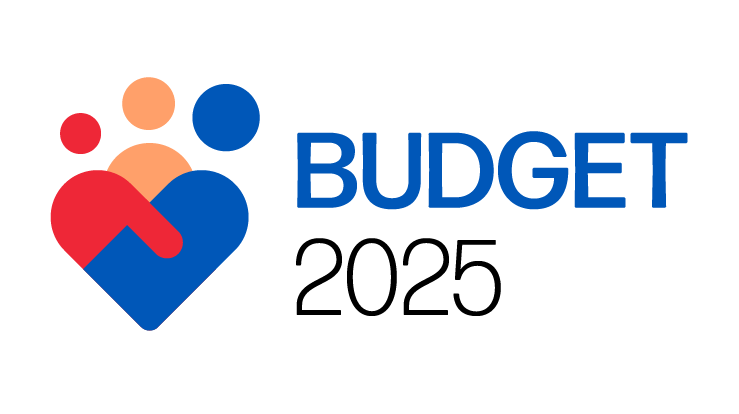60/40 Portfolio vs. Property Investments: Which Makes More Sense for Singaporeans in 2025?
Are you wondering where to put your money? HDB flat or stocks? This is the age-old question for Singaporean investors.
Making the right investment decisions is crucial for securing your financial future, especially in a dynamic environment like Singapore.
Two popular options often considered are the 60/40 portfolio and property investment. The 60/40 portfolio, traditionally comprising 60% stocks and 40% bonds, aims to balance risk and returns.
Alternatively, Singaporeans have long viewed property as a stable and lucrative investment. But which strategy truly makes more sense for you in 2025?
The "best" investment strategy is not a universal solution. The ideal choice hinges on your personal circumstances, risk tolerance, and financial goals.
This article will delve into the advantages and disadvantages of each approach. We will examine them specifically within the context of Singapore in 2025.

The 60/40 Portfolio: A Balanced Approach
The 60/40 portfolio is a well-established investment strategy. It is favoured by many for its simplicity and diversification. Is it the right choice for you? Let's examine the pros and cons.
Advantages
- Diversification: The blend of stocks and bonds is key. Stocks offer growth potential, while bonds provide stability. This mix reduces overall portfolio risk. The prices of these assets are negatively correlated. This means that when one asset class falls in value, the other may rise or remain stable.
- Liquidity: Stocks and bonds are relatively easy to buy and sell. You can quickly access your funds if needed. This is a significant advantage over less liquid assets like property.
- Accessibility: You can start investing in a 60/40 portfolio with a smaller initial capital. Many platforms offer fractional shares and low-cost bond ETFs, making it accessible to a wider range of investors.
- Potential for Long-Term Growth: Historically, diversified portfolios have delivered solid returns over the long term. This makes it a suitable option for long-term goals such as retirement.
Disadvantages
- Market Volatility: The value of your portfolio can fluctuate in the short term. Market downturns can be unsettling. It requires a stomach for risk.
- Lower Returns Compared to Property (Potentially): In certain periods, property may outperform stocks and bonds. Singapore's property market has seen significant appreciation over the years.
- Requires Discipline: Staying invested during market volatility is essential. Emotional decision-making can derail your long-term investment success.
Property Investment in Singapore: The Tangible Asset
Property investment holds a special place in the hearts of Singaporeans. It's seen as a safe and reliable way to build wealth. Let's explore the allure and drawbacks of investing in Singaporean property.
Advantages
- Tangible Asset: Owning a physical asset provides a sense of security. You can see and touch your investment. This can be psychologically reassuring.
- Potential for Capital Appreciation: Singapore's property market has a history of value appreciation. Limited land and high demand contribute to this trend.
- Rental Income: You can generate passive income by renting out your property. This income can help offset mortgage payments and provide additional cash flow.
- Hedge Against Inflation (Potentially): Property values and rental income may rise with inflation. This can help preserve your purchasing power.
Disadvantages
- High Capital Outlay: Buying property requires a significant down payment. There are also other costs like stamp duties and legal fees.
- Illiquidity: Selling a property can take time. It is not as easy as selling stocks or bonds. This can be a problem if you need quick access to your funds.
- Maintenance and Upkeep Costs: Property ownership involves ongoing expenses. These include property taxes, maintenance fees, and repair costs.
- Government Regulations and Policies: Government policies can impact the property market. Cooling measures, stamp duties, and housing grants can affect your investment returns.
- Property Market Cycles: Property prices can go down as well as up. Economic downturns and changes in demand can lead to price declines.
Singapore in 2025: Key Factors to Consider
To make an informed decision, it's crucial to consider the specific context of Singapore in 2025. Several factors can influence the performance of both investment strategies.
- Interest Rate Environment: Interest rates affect mortgage costs and bond yields. Rising interest rates can make property investment more expensive and potentially increase returns on bonds. Interest rates are averaging around 2.5% in 2025.
- Inflation Outlook: Inflation can impact both asset classes. High inflation could erode the real returns of bonds, while potentially boosting property values and rental income.
- Government Policies: Keep an eye on potential policy changes. New housing, investment, or taxation regulations could significantly impact your chosen investment strategy.
- Economic Growth and Outlook: Singapore's economic performance influences both the stock market and the property market. Strong economic growth typically supports both asset classes. Singapore's 2024 economic growth is expected to accelerate modestly, but growth may moderate in 2025 due to geopolitical tensions and trade conflicts.
- Demographics and Housing Demand: Long-term trends in population growth and housing demand are vital. A growing population typically supports property values, especially with limited land supply.
Making the Right Choice for You
So, which investment strategy is the right one for you? Here's a breakdown of factors to consider:
- Risk Tolerance: Are you comfortable with market fluctuations? If you prefer a stable, less volatile investment, property might be more appealing. If you can stomach short-term ups and downs for potentially higher long-term returns, the 60/40 portfolio could be a better fit.
- Investment Horizon: What are your long-term plans? For long-term goals like retirement, both strategies can be viable. However, if you have a shorter time horizon, the liquidity of the 60/40 portfolio might be more advantageous.
- Financial Goals: What are you hoping to achieve with your investments? If you're looking for passive income, property rental could be a good option. If you're focused on maximizing long-term growth, a diversified 60/40 portfolio might be more suitable.
- Financial Situation: Take stock of your current financial standing. Consider your income, savings, and existing debts. Property investment requires a significant upfront investment, so ensure you have sufficient capital and can comfortably handle mortgage payments.
Conclusion: A Tailored Approach
There's no magic bullet when it comes to investing. The "best" strategy depends entirely on your individual circumstances. This article has explored the pros and cons of both the 60/40 portfolio and property investment. Your risk tolerance, investment horizon, financial goals, and current financial situation are important.
In 2025, the investment landscape in Singapore presents both opportunities and challenges. Stay informed, conduct thorough research, and seek professional financial advice. Carefully consider your own needs and goals before making any investment decisions.
Disclaimer: This article is for informational purposes only. It does not constitute financial advice. Please consult with a qualified financial advisor before making any investment decisions.
Let us know what you think about this topic, and what do you want to hear next.
You can now be our community contributor and make a pitch to have your favourite personality be on our show.
Join our community group and drop us your insights on this topic.

-3.png?width=50&name=Square%20(2)-3.png)










Let us know what you think of this post